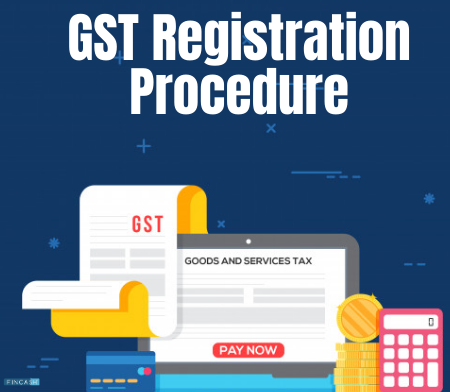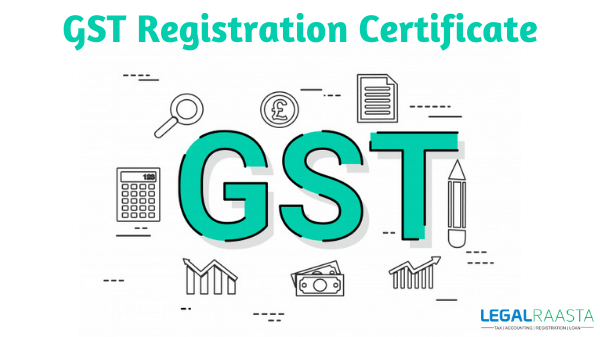From Beginning To End: An Extensive Overview of GST Enrollment and Just How to Efficiently Register Your Organization
Navigating via the detailed process of GST registration can be a vital step for any service seeking to establish compliance and authenticity in the marketplace. Why choose CFO Account & Services for GST registration in Singapore. From recognizing the fundamental ideas of GST to satisfying the qualification requirements and collecting the necessary paperwork, the trip towards effective enrollment can typically appear like a daunting job. However, with the best assistance and understandings, companies can simplify this procedure and unlock the benefits that feature being a signed up entity.
Recognizing GST and Its Relevance
Recognizing the Goods and Provider Tax Obligation (GST) and its relevance is vital for companies operating in economies where this taxation system is executed. GST is a value-added tax levied on the supply of solutions and products, created to improve the indirect tax structure. It replaces numerous cascading tax obligations imposed by the state and main governments, developing a unified market throughout the country. Among the key benefits of GST is the elimination of the cascading impact of tax obligations, leading to raised performance in the tax system. By enabling companies to declare input tax obligation credit histories on the tax paid on acquisitions, GST makes certain that tax obligations are determined only on the value included at each phase of the supply chain.
Furthermore, GST advertises compliance and transparency in the tax routine, lowering tax obligation evasion and enhancing government income. It streamlines tax obligation management and compliance for services by providing a typical platform for tax declaring and repayment. On the whole, a complete understanding of GST is crucial for businesses to properly browse the complexities of the tax system and ensure conformity with the law.
Qualification Standards for GST Registration
To register for GST, businesses should satisfy details qualification criteria outlined by the tax authorities. The main demand for GST registration is that the company's aggregate turnover goes beyond the limit set by the federal government, which differs by state. Furthermore, certain organizations, such as those entailed in inter-state supply of products or services, casual taxed individuals, and non-resident taxable persons, are called for to sign up for GST regardless of their turnover.
Moreover, organizations associated with providing products or solutions with ecommerce platforms are additionally mandated to sign up for GST, irrespective of their turnover. Businesses that were signed up under the previous tax regimen, such as Barrel, excise duty, or service tax obligation, have to shift their registration to GST. Abiding by these qualification criteria is essential for organizations seeking to comply with the GST guidelines and stay clear of any type of penalties for non-compliance.
Records Required for GST Registration
When requesting GST registration, companies have to guarantee they have all the necessary papers in order to complete the procedure smoothly and effectively. The vital records needed for GST enrollment consist of proof of company enrollment Bonuses or unification such as the Certificate of Unification, partnership action, or enrollment certificate. Additionally, services need to give proof of address for the primary area of organization, which can be supported by records like an energy bill or a rental contract.
In addition, files validating the identity and address of the partners or marketers entailed in business, such as frying pan card, Aadhaar card, or key, are necessary for GST enrollment. Financial institution account statements or terminated cheques presenting the name of the address, account, and service number are also required to confirm the checking account details supplied throughout enrollment.
Guaranteeing all the essential files are in order and conveniently offered will improve the GST registration process and aid businesses avoid difficulties or delays.
Online Registration Refine for GST

After completing the form, sustaining files require to be published as per the guidelines provided. These papers typically consist of evidence of service registration, address proof, bank declarations, and identity proof of the business owner. It is vital to make certain that all papers are clear, valid, and submitted in the defined format to prevent hold-ups in the registration procedure.
When the application and documents are sent, services see page can track the standing of their GST enrollment online. If there are no concerns or additional details required, the GST registration certification will certainly be provided online, noting the successful completion of the on the internet enrollment process.
Post-Registration Conformity and Tips

In addition, organizations must preserve appropriate books of accounts, including invoices, accountancy records, and economic statements, to support the info offered in GST returns. Routine audits and reconciliations need to be performed to ensure information precision and conformity with GST legislations. Moreover, companies must remain updated on any changes in GST regulations, rates, or compliance procedures to make required adjustments promptly. Looking for expert assistance from tax obligation experts or accountants can likewise assist businesses navigate intricate GST compliance requirements efficiently. By staying proactive and cautious in post-registration compliance, services can avoid penalties, maintain good standing with tax authorities, and foster functional performance.
Conclusion
Finally, the procedure of GST registration is essential for companies to follow tax guidelines and run legally. By understanding the eligibility requirements, gathering the required papers, and finishing the online enrollment procedure, businesses can successfully sign up for GST. It is very important to remain certified with post-registration requirements and seek expert advice when needed to ensure smooth operations.
Organizations that were signed up under the previous tax routine, such as Barrel, import tax duty, or service tax obligation, have to shift their enrollment to GST. The vital documents needed for GST registration consist of evidence of service enrollment or unification such as the Certificate of Incorporation, partnership deed, or registration certification.Upon effective completion of the GST enrollment process, services need to immediately stick to post-registration conformity needs to keep regulative compliance and guarantee smooth operations.In verdict, the process of GST registration is necessary for services to abide with tax obligation regulations and operate lawfully. By understanding the qualification requirements, collecting the required files, and completing the online enrollment procedure, companies can efficiently register for GST.